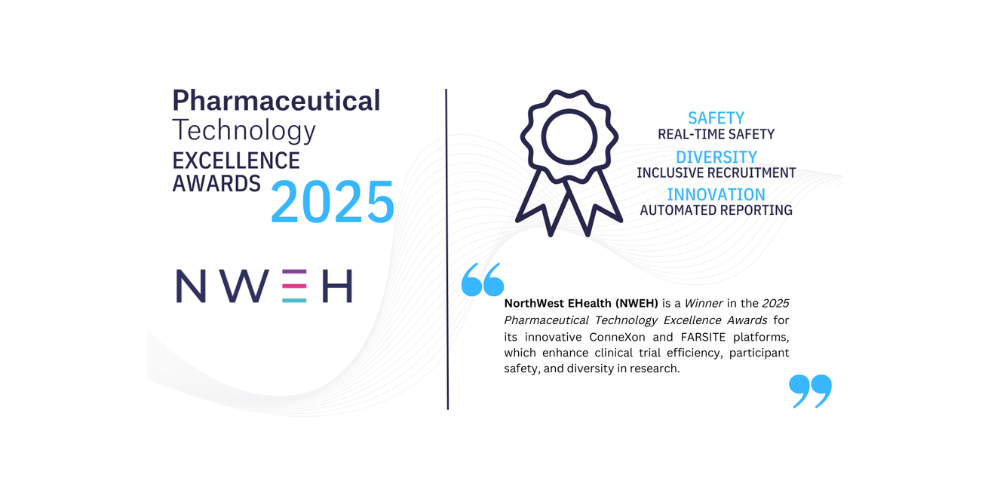April 6, 2023
The Future of Clinical Trials

Clinical trials are an essential aspect of medical research, providing critical data that helps to determine the safety and efficacy of new drugs, therapies, and medical devices. Over the years, clinical trials have evolved to become more efficient and effective, but there is still considerable scope for innovation to improve the process further. NWEH are at the forefront of innovation in clinical trials and in this blog post, we’ll explore some of the ways clinical trials might be conducted in the future, with a focus on innovation.
Virtual Clinical Trials
One of the most promising innovations in clinical trials is virtual trials (sometimes also called decentralised trials), which leverage technology to conduct studies remotely. With virtual trials, participants can use their smartphones, wearables, and other devices to collect data, and communicate with researchers without the need for in-person visits. This approach offers several advantages, including increased convenience for participants, reduced costs, and faster recruitment times. Here at NWEH we have pioneered the incorporation of electronic health information from health records and can integrate all of these data into our ConneXon trial platform to deliver virtual trials with minimal burden on participants but maximal information gathering for safety and outcomes monitoring. It makes our trials far more inclusive and true-to-life to meet the needs of sponsors, regulators and for the longer term health of our communities.

Real-World Data
Another trend that is gaining momentum is the use of real-world data (RWD) to support clinical trials. RWD refers to data collected outside of traditional clinical trial settings, such as electronic health records, claims data, and social media. By integrating RWD into clinical trials, researchers can gain a better understanding of how a drug or therapy works in real-world scenarios, and potentially identify new uses for existing treatments. We were the first organisation globally to conduct large scale pre-licence trials that used routinely collected electronic healthcare data to provide evidence of safety and improved outcomes for a real-world population. These studies, known as the Salford Lung studies with GSK, have become the benchmark for the use of RWD to support clinical evaluation in the pre-licence space.

Artificial Intelligence
Artificial intelligence (AI) is also poised to transform clinical trials in the future. AI can be used to analyse large volumes of data, identify patterns and trends, and make predictions about how a drug or therapy will perform. This approach can help researchers to optimise clinical trial designs, identify patient subgroups that may benefit from a treatment, and reduce the time and costs associated with clinical trials. Our NWEH technology gathers large amounts of information as our trials progress and our in-house data analytics team, with appropriate approvals in place, are increasingly able to utilise AI to identify benefits for our participants and sponsors.

Patient-centred Trials
Finally, patient-centred trials are becoming increasingly desirable, with a focus on patient needs, preferences, and experiences. This approach involves engaging patients in the design and execution of clinical trials, and providing support and resources to ensure that participants have a positive experience. Patient-centred trials can lead to higher retention rates, increased participant satisfaction, and more relevant data. The use of our ConneXon trials platform with additional data gathered by participants directly ensures that our trials are increasingly relevant for patients, payers and providers.
In conclusion, clinical trials are a critical aspect of medical research, and ongoing innovation is necessary to improve their efficiency and effectiveness. Virtual trials, real-world data, artificial intelligence, and patient-centred trials are just a few examples of the ways clinical trials might be conducted in the future. As new technologies and approaches emerge, it’s likely that clinical trials will continue to evolve, leading to more personalized and effective treatments for patients. NWEH remain at the forefront of trials technology and know-how in all of these scenarios and have even more exciting innovations planned for the future – watch this space!



